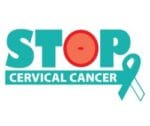This week, Burness (members of Ikigai) & Women4Cancer launched the STOP Cervical Cancer campaign.
STOP – an acronym – best describes the campaign’s main aims:
– Increase the frequency and accessibility of screening & treatments
– Optimise cervical cancer diagnostics
– Raise awareness about prevention
According to AMPATH, 33 per 100,000 women in Kenya will have cervical cancer in their lifetime. Although cervical cancer is more prevalent in low- and middle-income countries, Kenya is one of the top 20 countries with the highest rates worldwide.
As it stands, women in Kenya are 14 times more likely to die from cervical cancer than women in the US. In Kenya, cervical cancer claims the lives of 9 women daily and affects approximately 5,250 women every year. Yet, cervical cancer is preventable and treatable.

Why is cervical cancer so pervasive in Kenya?
It mainly comes down to two factors. Firstly, information about cervical cancer and reproductive health is not widespread. Very few women are aware of symptoms or procedures available.
Information about sexually transmitted diseases and their effects is severely lacking. In this instance, information about Human Papillomavirus (HPV) is scarce, even though it affects 80% of adults at least once in their lifetime. While most cases of HPV are not worrisome; some strains develop into pre-cancerous cells and cause cervical cancer 99.7% of the time.
When detected early, pre-cancerous cells can be treated before they spread. However, very few women go for regular screenings, and as a result, early detection rates in Kenya are quite low.
A beneficiary of Women4Cancer recalls she did not have any symptoms and therefore thought cervical cancer screening (i.e. PAP smear) was unnecessary. After going for a free screening, she was diagnosed with Stage 1 cervical cancer. The early diagnosis gave her access to more options for treatment and increased her chances of a cancer-free future. She, like a large portion of the population in Kenya, are at risk due to lack of information, leading us to our second point.
Screening and treatment options are not accessible because of financial constraints and inadequate infrastructure.
In its early stages, cervical cancer has no symptoms, making it easily undetectable for years. The only way to prevent cervical cancer is through regular screenings for women of reproductive age (15-65). It is recommended that women between the ages of 23-65 get screened at least once every three years. Burness highlights 85% of women in Kenya have never been to a screening, whilst only 3.2% of women in Kenya go for regular screening. This could be due to many reasons, but the main barrier is the cost of screening and access to health centres. One screening is Ksh 2,000/-, due to limited resources, this is often a financial burden many women cannot incur.
More so, there are only 13 cancer treatment centres across the country, the majority of which are found in Nairobi. This limits accessibility to urban areas, leaving many women around rural Kenya at risk.

How do Women4Cancer & Burness plan to improve conditions in Kenya?
To address the points above – Burness & Women4Cancer in conjunction with other organizations – are empowering women across Kenya with information and resources to give them a cervical cancer-free future.
The campaign will promote routine screening for women of reproductive age to increase early detection rates and consequently, the likelihood of successful treatments. Additionally, they intend to eliminate the cost barrier of screenings to enable women from all walks of life to get regular check-ups. To do so, they plan to raise Ksh 10 million by May 10th, 2020 to sponsor 5,000 women across Kenya to screening services. Furthermore, they plan to introduce preventative methods such as the HPV vaccine and other cost-effective screening methods to halt the rising burden of cervical cancer in Kenya.
To donate or learn more about STOP Cervical Cancer, click here.



Leave a Reply